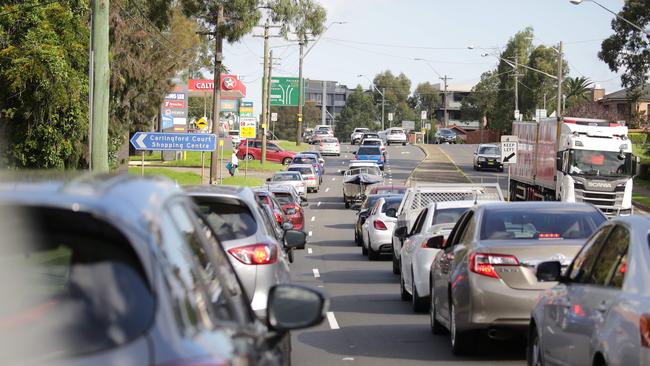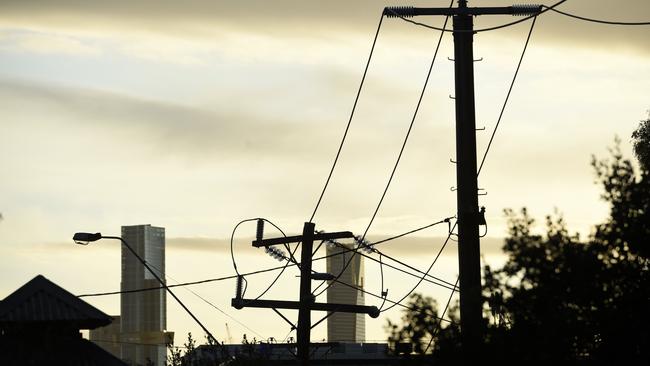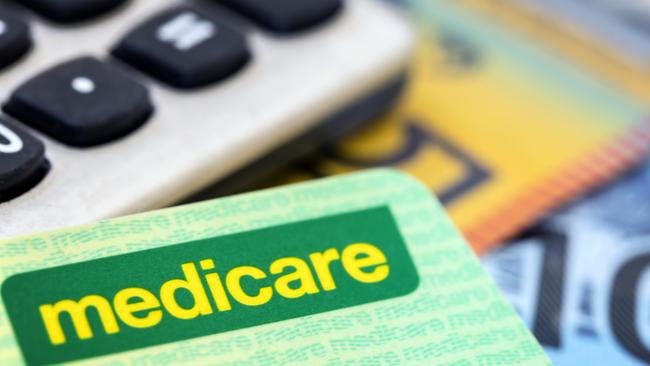New laws on July 1, 2022, across Australia: What they will cost and how they affect you
Australians are about to get slugged with higher costs for power and transport, but some will see relief and better access to more support payments on July 1. See the list.
National
Don't miss out on the headlines from National. Followed categories will be added to My News.
Australians are about to get slugged with higher costs for power and transport, but some will see relief and better access to more support childcare and carer payments on July 1.
Minimum wage, superannuation and property changes are also afoot to help workers, first home buyers and those who want to fatten their nest eggs.
Cheaper PBS drugs and changes to Medicare are also set to affect the way we access our health system.
See what’s coming and how it affects your household:
MINIMUM WAGE
The national minimum wage is due to increase by 5.2 per cent on July 1, giving eligible workers a weekly pay of $812.60, or $21.38 an hour, which is an increase of $40 a week.
TAX CHANGES
Family Tax Benefit Part A will increase by up to $204.40 per year for families with a child under 13 years, and $255.50 per year for those with a child 13 years and over. Similarly, Family Tax Benefit Part B will increase by up to $164.25 per year for families who have a youngest child under five and $116.80 per year for those whose youngest child is aged five to 18.

CARS AND TAX
The Motor Vehicle Information Scheme (MVIS) comes into effect and will increase competition and choice for consumers about where they have their cars serviced and repaired.
The ACCC states it will require motor vehicle service and repair information to be made available for Australian repairers to buy at a fair market price.
All Australian motor vehicle repairers will have fair access to the information needed to service and repair cars.
It applies to passenger vehicles and light goods vehicles other than omnibuses, manufactured on or after January 1, 2002.
It does not apply to 2 or 3 wheeled vehicles, farm, construction or heavy vehicles, motor homes or buses.
It means consumers can shop around for an independent repairer that offers the best price, service and convenience, knowing they will all have access to the information needed to complete the servicing or repair.
The scheme does not provide consumers with direct access to service and repair information. But it does not prevent car manufacturers from sharing information with drivers.
Safety and security information can only be accessed by repairers who meet access criteria.
The Luxury Car Tax (LCT) threshold for fuel-efficient vehicles will be increased by 6.6 per cent to $84,916. For all other vehicles it will rise by 3.9 per cent to $71,849. The LCT rate of 33 per cent will be applied to every dollar above these new thresholds.
When it comes to income tax, the car limit for 2022–23 is $64,741, which becomes the maximum value that can be used for calculating depreciation on the business use of a car first used, or leased, in the next income year.
If you purchase a car and the price is more than the car limit, the maximum GST credit one can claim is $5,885 in 2022–23.

ROAD TOLLS
Those travelling and holidaying on our roads will also face road toll price hikes.
NSW:
Cars using the Hills M2 will pay a maximum toll of $8.75 and a minimum toll of $2.59 for cars and from $7.76-$26.22 for trucks.
The Lane Cove Tunnel Military Road E-Ramp will cost from $1.82 up to $3.64. and between $6.14 and $12.28 for trucks.
The Eastern Distributor will cost $8.74 for cars and $17.47 for trucks.
The Cross City Tunnel will rise between $2.96 and $6.27 for cars and between $5.92 and $12.54 for trucks.
The M5 South West will cost $5.12 for cars and $15.35 for trucks, while the Westlink M7 will cost between 60 cents to $8.89 for cars and from $1.80 to $26.67 for trucks.
The NorthConnex will cost $8.74 for cars and $26.22 for trucks.
QLD:
Cars using the Clem 7 will pay $5.70, while trucks will pay up to $17.09.
Using the Go Between Bridge will cost car drivers $3.55. Truck drivers will pay between $5.33 and 10.66.
Legacy Way will cost $6.14 for cars and up to $18.43 for trucks.
Cars on the Toowoomba Bypass will pay $2.53, while trucks will pay up to $25.09.
On the Gateway Motorway/Logan Motorway, cars driving through the Murrarie toll point will pay $5.07, with trucks paying up to $16.73.
The Kuraby/Compton Road toll point will cost cars $2.99, and trucks will pay up to $9.87.
At the Loganlea toll point, cars will pay $1.92, with trucks paying $6.33.
Cars driving through the Heathwood/Paradise Road toll point will be charged $3.16. It will cost trucks $10.44

SUPERANNUATION
The percentage rate for the Super Guarantee will increase to 10.5 per cent, and employers need to contribute extra funds into staff super accounts.
The $450 monthly eligibility threshold for SG payments is being removed.
Employers only need to pay super for workers under 18 when they work more than 30 hours a week.
Those aged 60 and over will be able to make contributions of up to $300,000 per person or $600,000 per couple into their super.
Super members under 75 years will be able to make or receive personal contributions and salary sacrificed contributions without meeting the work test, subject to existing contribution cap limits.
They may also be able use the bring forward rule. Fund Trustees will also no longer have to administer the work test at the time they accept a contribution.

POWER BILLS
The Australian Energy Regulator (AER)’S latest Default Market Offer (DMO), which is maximum price retailers can charge customers on standing offers in NSW, Queensland and South Australia from July 1 will increase by between 7.2 per cent and 18.3 per cent depending on customer location and tariff.
Prices for small businesses will increase by between 5.7 per cent and 19.7 per cent.
The Essential Services Commission (ESC) in Victoria has also announced a price increase to the Victorian Default Offer (VDO) of up to five per cent for residential and small business customers.
CENTRELINK PAYMENTS
Welfare recipients who fulfil mutual obligations for payments will be moved onto a points-based system under Workforce Australia Online which replaces JobActive from July 1.
A person’s target starts at 100 points and includes a minimum of five job searches each month. The target or minimum job search may be reduced based on personal circumstances.
From July 5, eligible carers will get a Carer Supplement of up to $600 for each eligible person in your care.
Carers may also get a Child Disability Assistance Payment of up to $1,000 for each eligible child younger than 16 in one’s care.

PROPERTY
Under the First Home Super Saver Scheme, which allows first home buyers to use their super accounts as a savings vehicle, the amount that can be saved this way will increase from $30,000 to $50,000.
The First Home Loan Deposit Scheme will be known as the Home Guarantee Scheme (HGS) and offer two Guarantees to eligible home buyers known as the First Home Guarantee (FHBG) and the Family Home Guarantee (FHG).
35,000 First Home Guarantee places will be available to from July 1 and 5,000 Family Home Guarantee (FHG) places will be available each financial year from July 1 to June 30, 2025.
Under the Home Equity Scheme, older Australians can get an advance payment of a loan in addition to or instead of a fortnightly payment. This may reduce the fortnightly payment for the next 26 fortnights. A new no negative equity guarantee will apply to all current and new loans, meaning there’s no need to repay more than the equity in the property but exceptions may apply.

MEDICARE
Patients accessing MRIs, colorectal surgery and self-collected cervical screening tests will benefit from changes to the Medicare Benefits Schedule (MBS).
Annual indexation of MRI services will recommence for the first time since it was frozen by the Labor Government in 1998. Indexing relates to the benefit payment that changes in proportion to the cost of living. From July 1 the MBS indexation factor is 1.6 per cent
In addition, the MBS rebate for bulk billed MRI services will be brought in line with other diagnostic imaging services.
There are a number of changes to colorectal surgery items to “better align these services with contemporary and evidence-based treatment and to simplify and streamline items relating to colorectal surgery services”, Medicare says.
These include deleting outdated items, combining items that have been provided together into a single item, and updating the descriptors of items to better describe modern techniques. “Patients will benefit from improved patient safety and quality of care and may also benefit through a reduction in unnecessary services and related out-of-pocket expenses,” says Medicare.
Among the changes to pathology service items is the amendment of cervical screening item numbers to expand access to self‑collected cervical screening tests. Self-collected cervical screening is a key part of updated cervical cancer screening guidelines, which also come into effect on July 1.
Health economist, Professor Stephen Duckett, of the University of Melbourne, said the changes to Medicare reflected new procedures and created a more level playing field when it came to billing. And the reintroduction of indexation for MRIs after 24 years was the “right thing to do”, and would improve access and affordability for patients, he said.
“My view is that this is the right thing to do, to make sure that patients can get access to contemporary surgery and it’s billed appropriately,” he said.
“It’s the right thing to do for the taxpayer, that we’re actually making sure that the money we spend through the Medicare schedule is absolutely value for money, and it’s a level playing field and all doctors are billing in the same way.”
Professor Duckett conceded that the changes had been announced without “much notice”, which might catch private health insurers off guard when it came to gap payments, but he believed this would be resolved.
“There may still be teething issues and I think the previous government should have given more notice about this,” he said.
“I think the overall direction of what they were trying to do is exactly the right thing that we should be trying to do, and just because it was poorly implemented doesn’t mean it’s a bad decision.”
The full changes to the MBS from July 1 can be found here.
PBS DRUGS
More patients will pay less for their PBS medicines under the PBS Safety Net, which will be lowered to $1,457.10 for non‑concessional (general) patients.
This means they only pay the concessional co-payment of $6.80 for PBS medicines when they reach the lowered threshold.
For concession card holders, it will be lowered to $244.80.
HEALTH
All Australian women aged 25 to 74 will be among the first in the world to have the option to take a self-collected sample to test for cervical cancer.
Giving women the option to self-collect is part of an expanded campaign by the Federal Government to make cervical cancer screening more accessible and more widely available, helping Australia achieve the World Health Organisation’s strategy to eliminate cervical cancer by 2030.

CHILDCARE
The Child Care Subsidy System is being expanded to recognise combined families from July, and Services Australia will backpay those eligible for a higher subsidy amount for the period March to July. To get a higher subsidy, a family must earn less than $354,305 and have more than one child aged 5 or under in child care.
NDIS
Price limits for services delivered by disability support workers are being increased by nine per cent to address cost pressures on providers.
The price limits for nursing supports will be indexed on July 1 in line with the Wage Price Index and CPI.
IMMIGRATION
From July 1, existing Short-term Temporary Skill Shortage (TSS) visa holders I will be able to apply for permanent residence through the Temporary Residence Transition (TRT) stream of the Subclass 186 Employer Nomination Scheme (ENS) visa.
Applicants must have been in Australia between February 1, 2020 and December 14, 2021 for at least one year, and need to meet requirements for the TRT stream of the ENS visa.
From July, the age limit for Italian and Danish citizens wanting to work and travel in Australia will increase by five years – from 30 to 35 years of age. Australian citizens up to the age of 35 will also benefit from reciprocal arrangements with Italy and Denmark.
An additional 1,400 places will be available each year through reciprocal increases to visa caps for Hungary, Austria and the Slovak Republic, and will be reciprocated for Australians keen to travel and work abroad in these nations.
A new Work and Holiday Maker (WHM) arrangement will allow up to 100 young Mongolians and 100 young Australians each year to enjoy a 12-month holiday in each other’s country, during which they may undertake short-term work and study.
Up to 500 young Brazilians aged between 18 and 30 will also be able to stay in Australia each year, for a year-long holiday during which they can undertake short-term work and study.
TELSTRA MOBILE PLANS
Telstra’s mobile plan prices will increase in line with CPI, and cost of basic and essential plans will rise by $3 per month, while premium plans will rise by $4.
COMPANY, BUSINESS NAME FEES
ASIC will increase company and business name fees. Applications to register an Australian company will rise by $26 to $538, late payment fees for more than a month late rise by $18 to $362 and annual review fees for a registered scheme or public company go up to $1336 or up by $65.





